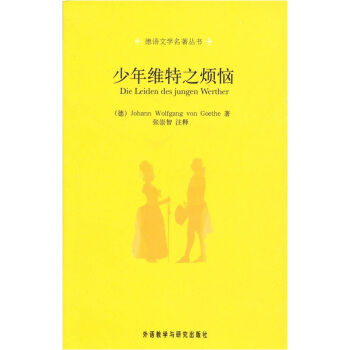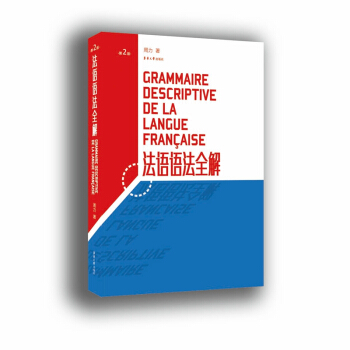![牛津英文经典:沉思录(英文版) [Meditations]](https://pic.windowsfront.com/11894379/56f50fa5Ne75c10a8.jpg)

具体描述
编辑推荐
牛津大学出版百年旗舰产品,英文版本原汁原味呈现,资深编辑专为阅读进阶定制,文学评论名家妙趣横生解读。内容简介
《沉思录》是古罗马帝国皇帝玛克斯·奥勒留在鞍马劳顿中所记录的与自己心灵的对话。这位一千八百年前的旷代奇人在书中阐述了灵魂与死亡的关系,解析了个人的德行、个人对社会的责任以及对为人处世律己待人之道等诸多人生哲理的领悟。该书不仅是古罗马斯多亚派哲学的里程碑,而且对今人的思想及生活仍有着重要的指导意义,可以说是人间至宝。作者简介
玛克斯·奥勒留(121—180),古罗马帝国皇帝。为帝国之治夙兴夜寐,为平定兵患而征战四方,并*终死于军中。奥勒留在文学、修辞、哲学、法律、绘画方面均受过良好教育,利用政事辛劳当中的片暇记录与自己的心灵对话,为后世留下不朽的精神财富——《沉思录》。精彩书评
《沉思录》有一种不可思议的魅力,它甜美、忧郁而高贵。这部黄金之书以庄严不屈的精神负起做人的重荷,直接帮助人们去过更加美好的生活。 ——费迪曼《一生的读书计划》《沉思录》不是属于某个宗教的,而是所有宗教的人都可以领略到这本书背后的灵性的层面。 ——梁文道
目录
IntroductionNote on the Text
Select Bibliography
A Chronology of Marcus Aurelius
Meditations
Appendix: A Selection from the Correspondence between Marcus Cornelius Fronto and Marcus Aurelius
Explanatory Notes
List of Letters Translated
Index of Themes
精彩书摘
1.From my grandfather* Verus, nobility of character and evenness of temper. 2.From the reputation of my father* and what I remember of him, modesty and manliness. 3.From my mother,* piety and generosity, and to abstain not only from doing wrong but even from contemplating such an act; and the simplicity, too, of her way of life, far removed from that of the rich. 4.From my great-grandfather,* that I never had to attend the public schools, but benefited from good teachers at home, and to have come to realize that this is a matter on which one should spare no expense. 5.From my tutor,* not to have sided with the Greens or the Blues [at the chariot-races] or the gladiators* with the long shields or short ones; to endure hardship, and have few needs; to do things for myself and not meddle in the affairs of others; and to turn a deaf ear to slander. 6.From Diognetus,* not to become obsessed with trivialities, and not to believe the claims of miracle-mongers and charlatans about incantations and the expulsion of demons and the like; not to engage in quail-fighting or become excited over pursuits of that kind; to be willing to tolerate plain speaking; to have become familiar with philosophy, and to have attended the lectures first of Baccheius, and then of Tandasis and Marcianus; to have written compositions as a boy; to have wished for a plank bed covered only with a skin and for everything that formed part of the greek discipline. 7.From Rusticus:* I gained the idea that my character was in need of correction and cultivation; and from him I learned not to write treatises on purely theoretical matters, or deliver little moralizing sermons, or play the ascetic or the benefactor in a manner calculated to impress; to abstain from oratory, and verse, and fine language, and not to walk around the house in ceremonial clothing, or indulge in other such vanities; to write letters in an unaffected style, as he did when he wrote to my mother from Sinuessa; with regard to those who have angered or wronged me, to be easily recalled to my usual frame of mind, and to be easily reconciled as soon as they are willing to make a move in my direction; to read with care and attention, and not be satisfied with a superficial impression; not to agree too quickly with those who talk with a fluent tongue; and finally, it was through him that I came to know the Discourses of Epictetus, as he lent me a copy from his own library. 8.From Apollonius:* inner freedom, and to be decisive without leaving anything to chance; to look to no other guide, even for an instant, than reason alone; to remain ever the same, in the; to remain ever the same, in the face of severe pain, after losing a child, or during long illnesses; to see clearly from his living example that a person can be extremely energetic and yet relaxed; not to become irritable when expounding a text; and to see in him someone who clearly regarded the skill and fluency that he showed in communicating philosophical doctrines as the least of his gifts; and to learn how one should accept from friends what pass for apparent favours without lowering oneself as a result or shoeing an insensitive disregard. 9.From Sextus:* a kindly disposition and the example of a household governed by the father of the house; the idea of what it means to live in accordance with nature;* gravity without affection, and a careful regard for the interests of one’s friends; patience towards the unlearned and those whose opinions are not founded on methodical reflection. The example of one who could accommodate himself to all kinds of people, so that his conversation was more charming than any flattery, while at the same time he aroused the deepest respect from those who associated with him. To show a sure grasp and methodical approach in searching out and ordering the principles necessary for life. And he never displayed even a sign of anger or of any other passion, but seemed at once to be completely free of passion and full of affection for his fellow human beings; and to be ready to praise, without being too demonstrative, and to possess extensive knowledge without making a show oof it. 10.From Alexander the grammarian:* not to be over-critical; and not to interrupt and correct those who have employed a solecism or some outlandish or discordant expression, but rather to suggest adroitly the very expression which ought to have been used while professing to offer a reply or some further confirmation, or to use some other tactful procedure to suggest the right expression in an indirect fashion. 11.From Fronto:* to have some conception of the malice, caprice, and hypocrisy that accompany absolute rule; and that, on the whole, those whom we rank as patricians are somewhat lacking in natural affection.* 12.From Alexander the Platonist:* that we should not often or without due necessity either say to anyone or write in a letter, ‘I am too busy’, nor in this way should we constantly try to evade the obligations imposed on us by our social relationships by pleading the excuse of urgent business. 13.From Catulus:* not to disregard a rebuke from a friend, even if his criticism may be unreasonable, but to try to restore him to his usual frame of mind; to offer unsinting praise to one’s teachers as is recorded of Athenodotus and Domitius;* and to show genuine love to one’s children. 14.From [my brother] Severus:* love for one’s family, for truth, for justice; that through him I came to know Thrasea, Helvidius, Cato, Dio, Brutus,* and to conceive that idea of a balanced constitution, and of government founded on equity* and freedom of speech, and of a monarchy which values above all things the freedom of the subject; and from him too a consistent and unfailing respect for philosophy; and from him too a consistent and unfailing respect for philosophy; and a readiness to help others, and open-handed generosity; to be of good hope, and trus in the affection of one’s friends; and how he would be completely open with those who incurred his disapproval, and that his friends never had to resort to conjecture about what he wished or did not wish, for it was plain to see. 15.From Maximus:* to be master of oneself, and never waver in one’s resolve; to be cheerful when ill, or in any other predicament; the example of a character marked by a harmonious blend of gentleness and gravity; to set to work on the task at hand without complaint. And the confidence he inspired in everyone that what he was saying was just what he thought, and that whatever he did was done with no bad intent; never to be surprised or discontented; and never to act in haste, or hang back, or be at a loss, or be downcast, and never to fawn on others or, on the other hand, be irascible or suspicious. To be beneficent, and ready to forgive, and free from guile; to give the impression of being someone who never deviates from what is right rather than one who has to be kept on the right path; and how nobody would ever have imagined that Maximus looked down on him, or yet have presumed to suppose that he was better than Maximus; and to be of good humour. 16.From my [adoptive] father:* to be gentle, and to hold immovably to judgements arrived after careful consideration; to be free from vain conceit with regard to worldly honours; zest for work and perseverance; to lend a ready ear to those who have anything to propose for the common benefit; never to be deflected from rewarding each person according to his deserts; to know by experience when to exert oneself and when to relax; to put a check on pederastic love affairs;* regard for the feelings of others, and how he would not always insist that his friends should attend his table or accompany him on his travels, and how they would alwas find him ever the same if they had been kept away by other business. At sessions of the council,* to examine every question with scrupulous care, and to be patient, as it was not his way to infatuations; to be self-sufficient in every respect, and to show a cheerful face to the world; to look far ahead, and plan even the smallest matters in advance, without making a song and dance about it. How he put a curb on the public acclamations and every kind of flattery during his reign; and the care that he constantly devoted to the needs of the empire, and his prudent stewardship of the public revenues, and his willingness to put up with the criticisms from superstitious fears; and with regard to people, not to court public favour by seeking to please at any price or pandering to the mob; but sobriety in all things, and firmness, and never a trace of vulgarity or lust for novelty. ……前言/序言
THE Meditations of Marcus Aurelius is a work without parallel among writings surviving from Classical antiquity—and an exceptional work in any age and culture. It is the philosophical diary of a Roman emperor, probably written while he was campaigning in Germany near the end of his life. In short, intense, and often powerful reflections, Marcus tries to articulate his core beliefs and values. Darwing mainly on Stoic philosophy, but formulated in his own way, Marcus finds the resources to help him meet challenges that he is acutely conscious of but which are also universal: facing one’s own approaching death, making sense of one’s social role and projects, looking for maral significance in the natural world. Marcus’ Life and Career Marcus (AD 121-80) was born in Rome as Marcus Annius Verus into a family of Spanish origin which had already achieved political distinction, His father died while Marcus was a child, and he was brought up by his grandfather, a relative of the emperor Hadrian, Hadrian admired the young Marcus, calling him Verissimus (‘most truthful’). When Hadrian chose Antoninus Pius as his heir and successor, he made Antoninus adopt as his sons Marcus and another young man, Lucius Verus. Marcus was educated by a number of famous teachers, including the orator Fronto; much of their correspondence survives, and a selection is included in his volume. From the age of 12, Marcus showed a strong interest in philosophy; after an early introduction to Stoicism, Junius Rusticus guided him to Epictetus’ Discourses which formed an important influence on the Meditations (1.7). Marcus married Antoninus’ daughter Faustina, his first cousin, in 145, and seemed to have had a largely happy marriage, with several children. In Book 1 of the Meditations (the only bok which has a single theme and overall structure), Marcus reviews the ethical and intellectual influence of his family and friends, giving special attention to his adoptive father and predecessor as emperor, Antoninus Pius (1.16). Marcus’ period as emperor(161-80) was marked by good relations between emperor and senate and was generally seen as a period of good administration. He ruled as co-emperor with Lucius Verus until Lucius’ death from illness in 169, and this collaboration seemed to have worked well. However, this was also a period when the stability of the roman empire was under threat from external enemies, and much of Marcus’ effort was devoted to organizing resistance to these threats. Between 162 and 165, the main focus was on responding to the Parthian invasion of the eastern part of the empire, with Lucius Verus as commander. In 166 and 168, plagues in Italy and the death of Lucius interrupted attempts to stabilize the Danube frontier of the empire. There was a series of campaigns in north Italy and Germany until his death in 180. These campaigns were largely successful and the borders of the empire were secured. A further threat was a failed revolt against Marcus by Avidius Cassius, governor of Egypt and Syria in 175. There were also persecutions of the Christians in Roman Gaul (France) and Asia Minor (Turkey), remembered bitterly in Christian sources but not treated as much of importance in Roman historical records. Despite all these disturbances, Marcus’ period as emperor was regarded as a good one at the time and afterwards, especially by contrast with his son, Commodus (emperor 180-92), who ruled badly and was finally assassinated as a tyrant. Meditations: Form, Purpose, style In a sense the Meditations have virtually no literary form and belong to no recognized genre of ancient writing. The title, Meditations was given to the work in the seventeenth century, is not thought to be Marcus’ own. Probably the work had no title and was not intended for publication but served as a purely private notebook for Marcus’ reflections. Ancient Greek and Roman texts are conventionally subdivided into ‘books’ and ‘chapters’; and this arrangement has been applied to this work. But only the first book (which records Marcus’ ethical debts to those who have influenced him) has any clear overall structure, and show little or no sign of deliberate organization. It seems likely that Marcus simply wrote down one or two comments at moments of leisure, for instance, at the beginning or end of the day, and the resulting work is the sum of those comments. The Meditations are written in Greek, which was the standard language for ancient philosophy and which Marcus would have known well (though, of course, his normal language was Latin). There are some indications that the work was written towards the end of his life; two books (2 and 3) have heading which refer to his German campaigns. Frequent and increasing references to his age, dissatisfaction with his associates, and his approaching death may indicate that the order of the books corresponds to the order in which they were written. In spite of the non-standard character of Marcus’ book, it is not difficult to identify its overall aim. Marcus is writing to writing to examine his inmost thoughts and advise himself how best to live. More precisely, he tries to encapsulate, in short , string sentences, key ethical principles and insights to support the overall direction of his life. As he puts it himself: ‘So constantly grant yourself this retreat and so renew yourself ; but keep within you concise and basic precepts that will be enough, at first encounter, to cleanse you from all distress and to send you back without discontent to the life to which you will return’(4.3). The broader context for this aim is the spread of works of (what we might call) ‘practical ethics’ in the first and second centuries AD. These have their roots in the philosophical theories, particularly Stoicism and Epicureanism, that emerged in the Hellenistic era (third to first century BC); but this kind of writing is also influenced by the great fourth-century BC thinkers Plato and Aristotle, especially Plato. Especially important for Marcus were the Discourses of Epictetus (c.AD 55-135), recording his Stoic teachings on practical ethics. Seneca (c.4 BC-AD 65), another Roman politician strongly influenced by Stoic philosophy, wrote extensively on this topic through the medium of dialogues, essays, and literary letters. Two general types of such writing especially underlie the Meditations, both types widely used in Stoicism, which is the main theory relevant for Marcus. One type offers generalized guidance about how to direct your ethical life, referring especially to the good qualities or virtues you should aim to express, and stressing that these should inform the roles and projects you undertake in life. The treatise On Duties (or On Obligations), especially Book 1, by Cicero (106-43 BC), another Roman politician-philosopher, is a famous example of this kind of writing. The other type is philosophy used as a means of therapy, designed to identify psychological and ethical failings (or sicknesses) and to cure them. Cicero also wrote in his genre (Tusculan Disputations) as did Seneca (On Anger). Marcus’ Meditations reflect the aims and themes of both these two kinds of writing, and combine advice and therapy in a highly distinctive way. By Marcus’ time, Stoic thinkers had also worked out specific schemes or methods of practical ethics, designed to enable people to conduct their own self-improvement in a relatively systematic way. Seneca for instance, advocates a threefold method: (1) assessing the ethical value of each object or activity, (2) adjusting your motivation to match the value of the object, and(3) working towards consistency between motivation and action. Epictetus offers a rather similar three-stage pattern. The first stage is matching our desires with the value of what we desire, and doing so in a way that shapes our emotional response. The second is forming motivation that is ethically appropriate, particularly in our dealings with other people. The third is aiming at complete consistency between our various beliefs and between our beliefs and our actions. In the Meditations, we sometimes find versions of these methods, though the stages are not always given in the same order as in the other thinkers(8.7,9.6-7). One recurrent feature is what Marcus describes as a ‘stripping’ method, focused on giving things their proper ethical value and ensuring that this valuation is reflected in how we act and fell in each case.用户评价
坦白说,这本书的阅读体验,更接近于一种精神上的“体力活”,需要专注和耐心,但回报绝对是丰厚的。它的语言风格,初看之下可能会觉得略显拗口或晦涩,毕竟是跨越时空的文字,翻译的痕迹和原著的古朴感交织在一起,形成了一种独特的阅读质感。我特别喜欢它那种碎片化的叙事结构,像是一颗颗闪烁着智慧光芒的珍珠,散落在不同的篇章里,没有冗余的铺垫,直击核心。这使得它非常适合在碎片化的时间里进行阅读,每次都能从中汲取到新的养分。我甚至试着将一些章节的内容抄写下来,用手写的方式去感受文字的重量,这比单纯的电子阅读更能加深理解和记忆。每一次重读,都会有新的领悟,仿佛每次翻开,它都在以一种不同的面貌与你相遇,揭示出先前被忽略的深层含义,这才是经典耐人寻味之处。
评分对于寻求内心平静的人来说,这本书无疑是一剂良药。我发现自己对待突发事件的反应模式有了微妙的转变。过去可能会被突如其来的坏消息或不公待遇立刻击垮,现在则会下意识地启动一种“内部审查”机制——即刻区分哪些是自己可以控制的,哪些是身外之事。这种心态上的转变,带来的不仅仅是情绪上的稳定,更是行动上的高效。它教导我们要聚焦于当下的责任和美德的践行,而不是沉湎于对未来的焦虑或对过去的悔恨。这种强调“内在城墙”的构建,在如今这个信息爆炸、外部干扰无孔不入的时代,显得尤为珍贵。它提供了一种强大的心理防护网,让你在外界喧嚣中,依旧能守住自己精神的领地,保持清醒和自洽。
评分这是一本让人沉下心来,细细品味的著作。初次捧读时,那种扑面而来的古老智慧气息,让人不禁放慢了阅读的速度。我总觉得,这本书里的每一个字,都仿佛经过了漫长岁月的淘洗,沉淀下来的是一种直指人心的洞察力。它不是那种提供快速解决方案的“成功学”读物,而是更像一位睿智的长者,在你迷茫时,轻轻点拨,让你自己去找到答案。阅读的过程,更像是一场与自我的对话,迫使你去审视那些平时被我们忽略的内心活动和情绪波动。你会发现,很多困扰我们的烦恼,在作者的视角下,似乎都变得微不足道起来。那种淡然处世的态度,那种对外界变化不为所动的坚韧,是现代人尤其需要学习的宝贵品质。我常常在读完一段后,会放下书本,静坐良久,试图将书中的哲理与我当下的生活情境进行比对和融合,体会那种“知行合一”的微妙境界。
评分从装帧设计和排版来看,这个版本的设计非常典雅,体现了对原著应有的尊重。厚实的纸张,以及清晰的字体间距,都极大地提升了阅读的愉悦感。它不仅仅是一本书,更像是一件值得珍藏的艺术品,摆在书架上本身就是一种精神上的慰藉。我个人习惯在睡前阅读几页,它总能帮助我“清理”一天的杂念,让思绪回归到一种平和的状态。这种仪式感对于深度阅读至关重要。可以说,投资于这样一本经典,绝不是浪费时间,而是对自身精神世界的长期投资。每一次翻阅,都像是与一位古老而伟大的导师进行了一次私密的、不受打扰的交流,让人感到充实和踏实,充满了对明天挑战的积极准备。
评分这本书的魅力还在于它的普适性,尽管它诞生于特定的历史背景之下,但其探讨的人性、道德、对待苦难的态度,却是永恒的议题。我体会到,作者的思考始终围绕着如何成为一个更好的人展开,这种对“良善生活”的持续追求,超越了任何地域和时代的限制。我身边的一些朋友,对哲学素养不高的,起初被这本书的名字吓退,但当我鼓励他们尝试后,他们反馈的却是“原来如此简单而深刻”的惊叹。这说明,真正的智慧往往以最朴素的面貌出现,它不需要复杂的术语来包装,只需要一颗愿意倾听的心。它像一面镜子,映照出我们自身的局限与潜力,促使我们去追求更高层次的自我实现,那种发自生命本源的驱动力。
评分挺不错的,牛津出品有保证
评分不错不错不错不错不错不错
评分为什么喜欢在京东购物呢?因为今天下单,明天就收货了。服务好,送货快,谁不喜欢呢?而且商品的质量还有保证,买家当然放心啦!
评分女儿指定的,也不知能看懂多少。
评分还没看,愉快的一次购物,购物就相信京东。
评分觉得价格略贵,包装略简陋,字有点小,看着累,其他都还好
评分书角在包装状态就是破损翻起的,页边距和行距的编排显得拥挤了些,切割面略微发毛,整体不很满意。
评分亚当·斯密是十八世纪中期英国负盛名的政治经济学家和伦理学家,他一生研究的学问涉及天文学、纯文学、修辞学、哲学、伦理学、政治学、法学和政治经济学等。《国富论》奠定了他作为英国古典政治经济学奠基人的崇高地位和名望。
评分很大,很厚,字数也很多,不过还没看,感觉不错。《作为意志与表象的世界》为对照
相关图书
本站所有内容均为互联网搜索引擎提供的公开搜索信息,本站不存储任何数据与内容,任何内容与数据均与本站无关,如有需要请联系相关搜索引擎包括但不限于百度,google,bing,sogou 等
© 2026 book.coffeedeals.club All Rights Reserved. 静流书站 版权所有


![牛津英文经典:双城记(英文版) [A Tale of Two Cities] pdf epub mobi 电子书 下载](https://pic.windowsfront.com/11980703/57e4d9dcNdee4ed47.jpg)







![心灵鸡汤:路过心上的美丽英文 [Chicken Soup for the Soul:Find Your Happiness] pdf epub mobi 电子书 下载](https://pic.windowsfront.com/11436294/rBEhV1M6MuIIAAAAAAkB8gQt3F4AALJfwKMhGoACQIK716.jpg)

![不管三七二十一 零起点韩语入门就这么任性 这99句韩语不会怎么行? [韩语就该这样学!韩语40音不会怎么行?] pdf epub mobi 电子书 下载](https://pic.windowsfront.com/11897946/56f89b93N459740a2.jpg)





![中学英语组合训练 完形填空+短文填词(八年级) [Effective Training] pdf epub mobi 电子书 下载](https://pic.windowsfront.com/11744477/569dcb37N256d12e2.jpg)

